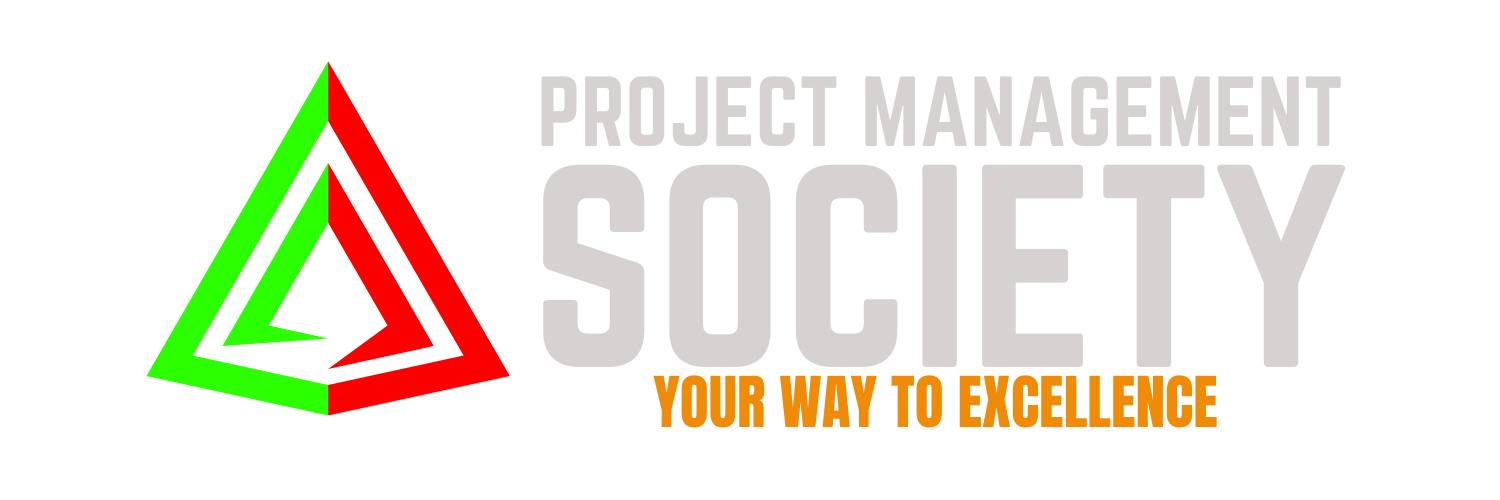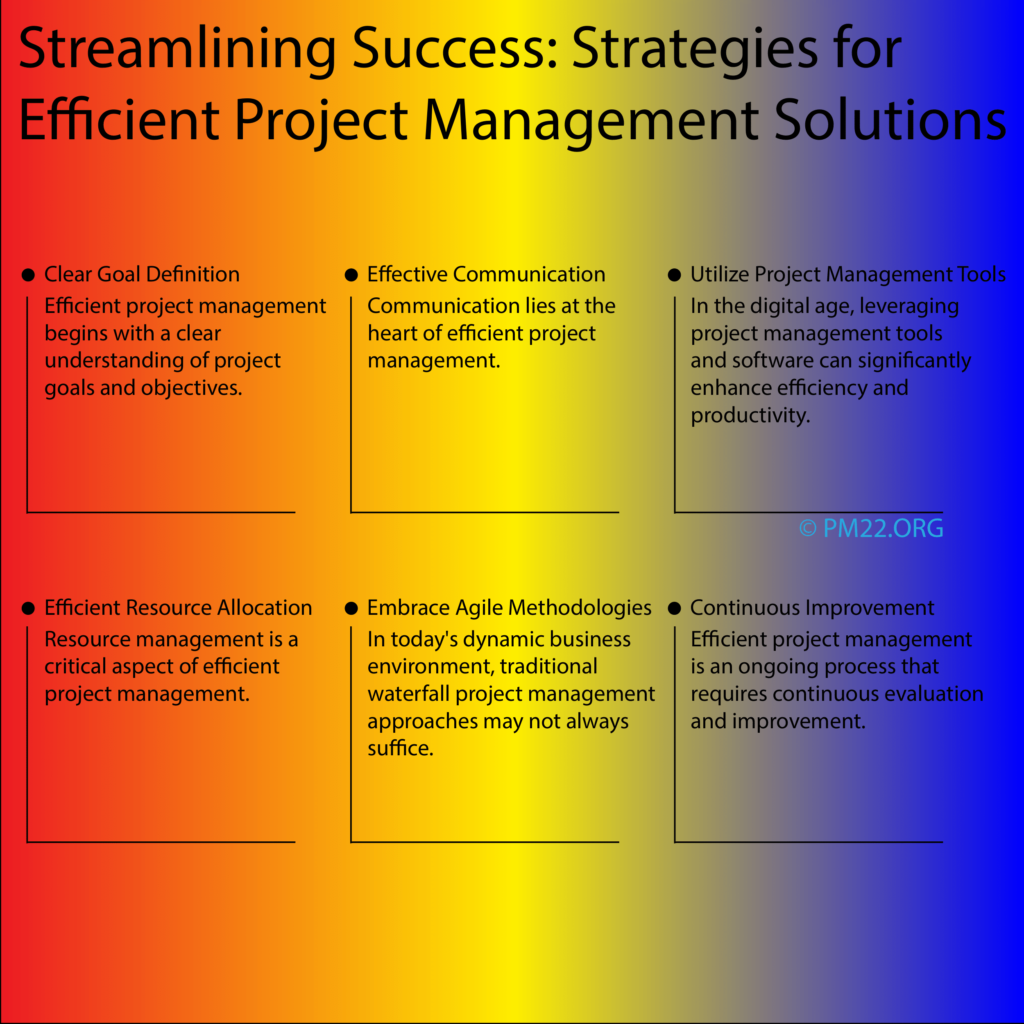 In today’s fast-paced and dynamic business landscape, efficient project management has become the cornerstone of success for organizations across various industries. With projects becoming increasingly complex and deadlines tighter, the ability to streamline processes and deliver results promptly has never been more crucial. In this article, we delve into key strategies for achieving efficient project management solutions, ensuring smooth operations and successful project outcomes.
In today’s fast-paced and dynamic business landscape, efficient project management has become the cornerstone of success for organizations across various industries. With projects becoming increasingly complex and deadlines tighter, the ability to streamline processes and deliver results promptly has never been more crucial. In this article, we delve into key strategies for achieving efficient project management solutions, ensuring smooth operations and successful project outcomes.
- Clear Goal Definition: Efficient project management begins with a clear understanding of project goals and objectives. Before embarking on any project, it’s essential to define its scope, deliverables, timelines, and desired outcomes. This clarity provides a roadmap for the project team, ensuring everyone is aligned and focused on the same objectives. Additionally, clearly defined goals help in setting realistic expectations and avoiding scope creep, which can derail project timelines and budgets.
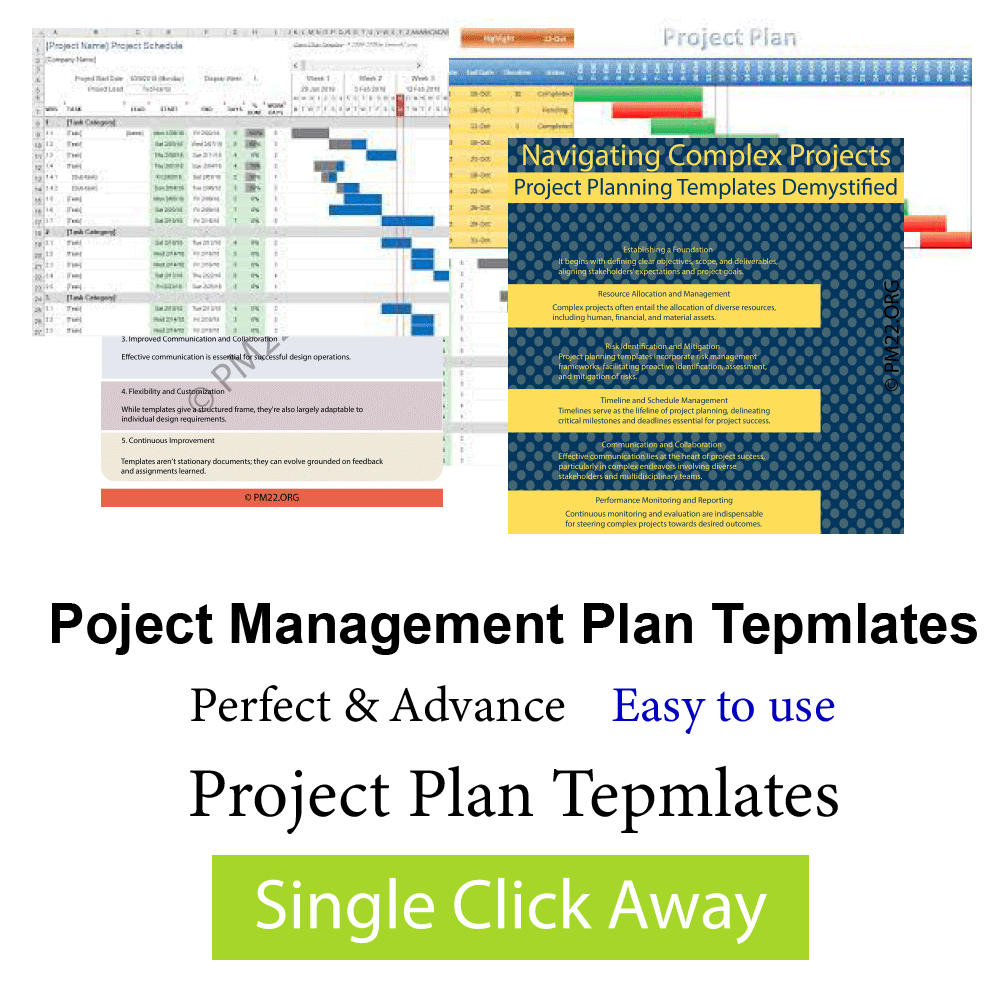
- Effective Communication: Communication lies at the heart of efficient project management. Establishing open channels of communication among team members, stakeholders, and clients fosters collaboration, enhances transparency, and minimizes misunderstandings. Utilizing communication tools such as project management software, email, and regular meetings helps keep everyone informed about project progress, milestones, and any challenges encountered along the way. Clear and concise communication ensures that all stakeholders are on the same page and can quickly address any issues that arise, preventing delays and setbacks.
CLICK HERE TO DOWNLOAD 300+ PROJECT MANAGEMENT TEMPLATES & DOCUMENTS IN EXCEL
- Utilize Project Management Tools: In the digital age, leveraging project management tools and software can significantly enhance efficiency and productivity. These tools offer features such as task tracking, scheduling, document sharing, and collaboration, allowing teams to manage projects more effectively. Whether it’s agile methodologies like Scrum or Kanban boards, or comprehensive project management platforms like Asana, Trello, or Jira, finding the right tools can streamline workflows, automate repetitive tasks, and facilitate better decision-making.
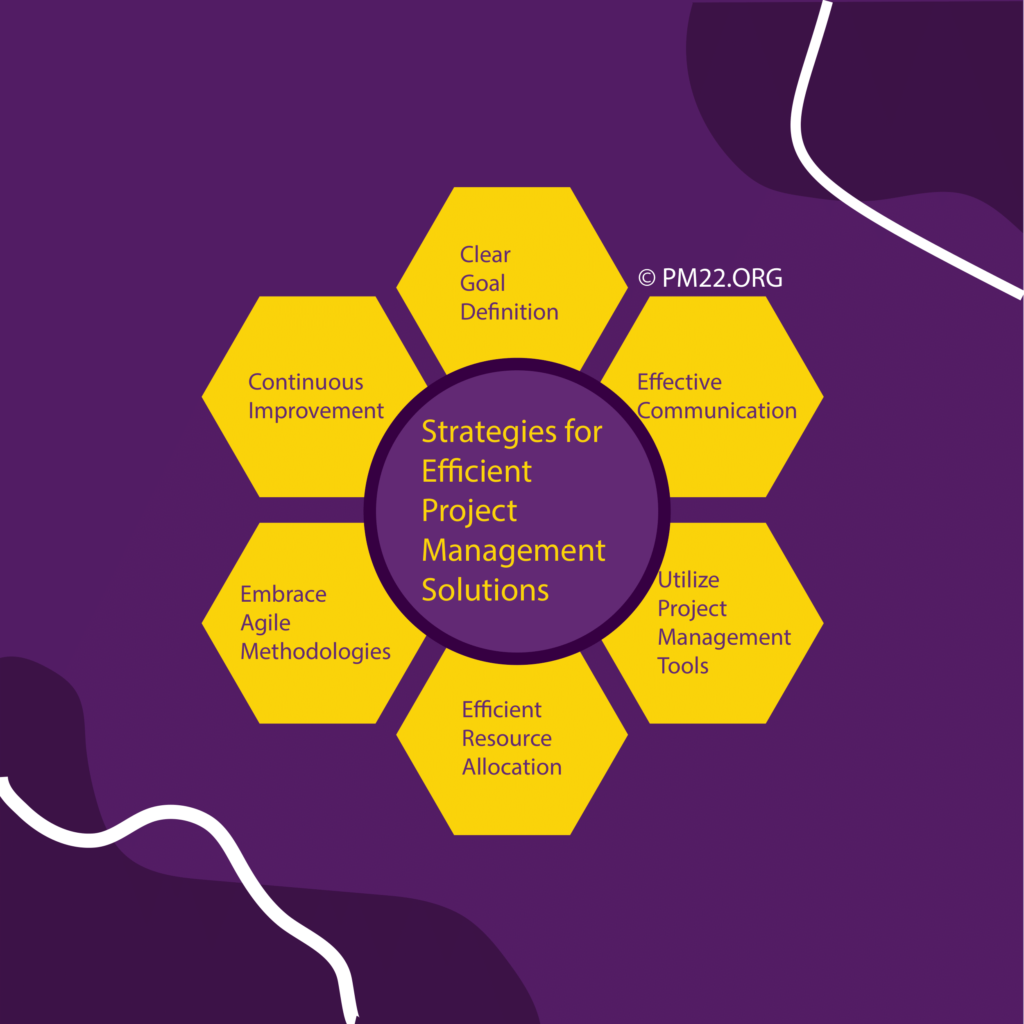
- Efficient Resource Allocation: Resource management is a critical aspect of efficient project management. It involves allocating the right people, time, and budget to various project tasks based on their priority and importance. By effectively managing resources, project managers can optimize productivity, minimize wastage, and ensure that projects are completed within budget and on schedule. This requires careful planning, monitoring, and adjustment of resource allocations as project requirements evolve.
CLICK HERE TO DOWNLOAD 300+ PROJECT MANAGEMENT TEMPLATES & DOCUMENTS IN EXCEL
- Embrace Agile Methodologies: In today’s dynamic business environment, traditional waterfall project management approaches may not always suffice. Agile methodologies, characterized by iterative development, flexibility, and adaptability, have gained popularity for their ability to deliver projects more efficiently. By breaking down projects into smaller, manageable chunks and prioritizing customer feedback and collaboration, agile teams can respond quickly to changing requirements and deliver value incrementally.
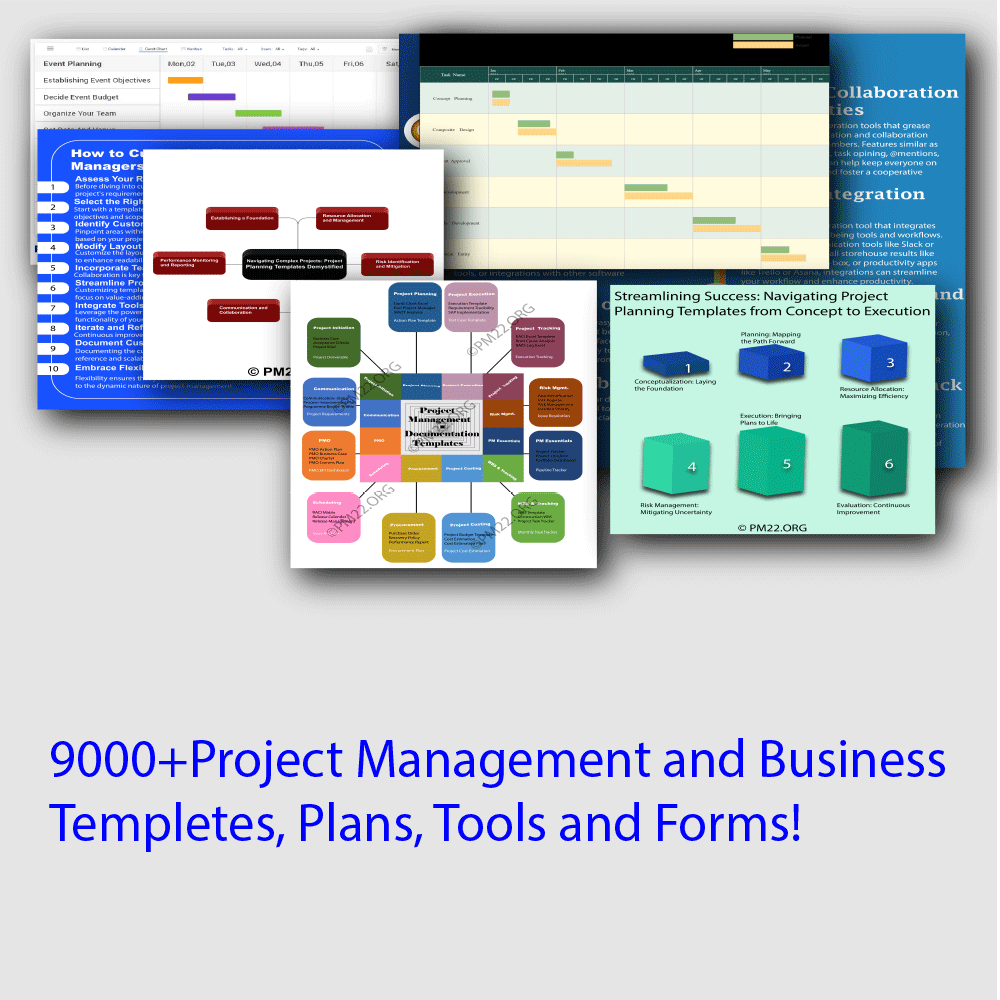
- Continuous Improvement: Efficient project management is an ongoing process that requires continuous evaluation and improvement. After completing each project, it’s essential to conduct a post-mortem analysis to identify areas of improvement and lessons learned. This feedback loop allows teams to refine their processes, address bottlenecks, and implement best practices for future projects. By fostering a culture of continuous improvement, organizations can stay agile, adapt to changing market conditions, and maintain a competitive edge.
In conclusion, efficient project management is paramount for achieving success in today’s competitive business landscape. By implementing clear goal definition, effective communication, utilizing project management tools, efficient resource allocation, embracing agile methodologies, and fostering a culture of continuous improvement, organizations can streamline their project management processes and deliver successful outcomes consistently. By adopting these strategies, businesses can enhance efficiency, productivity, and ultimately, their bottom line.
